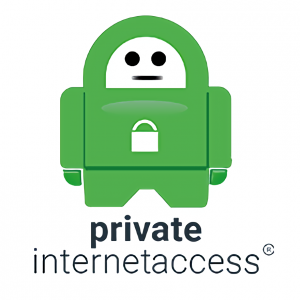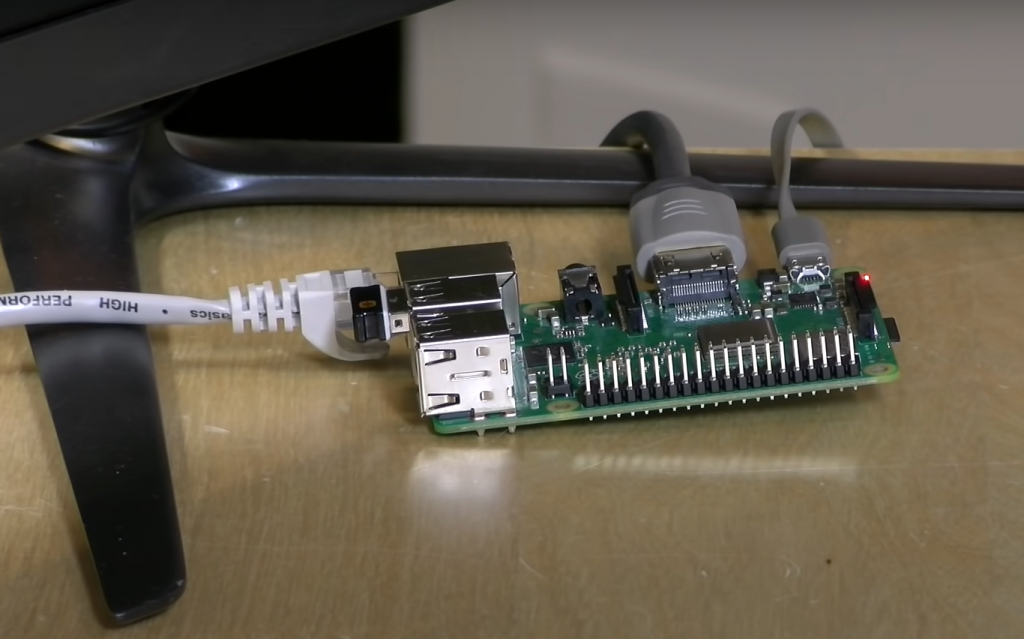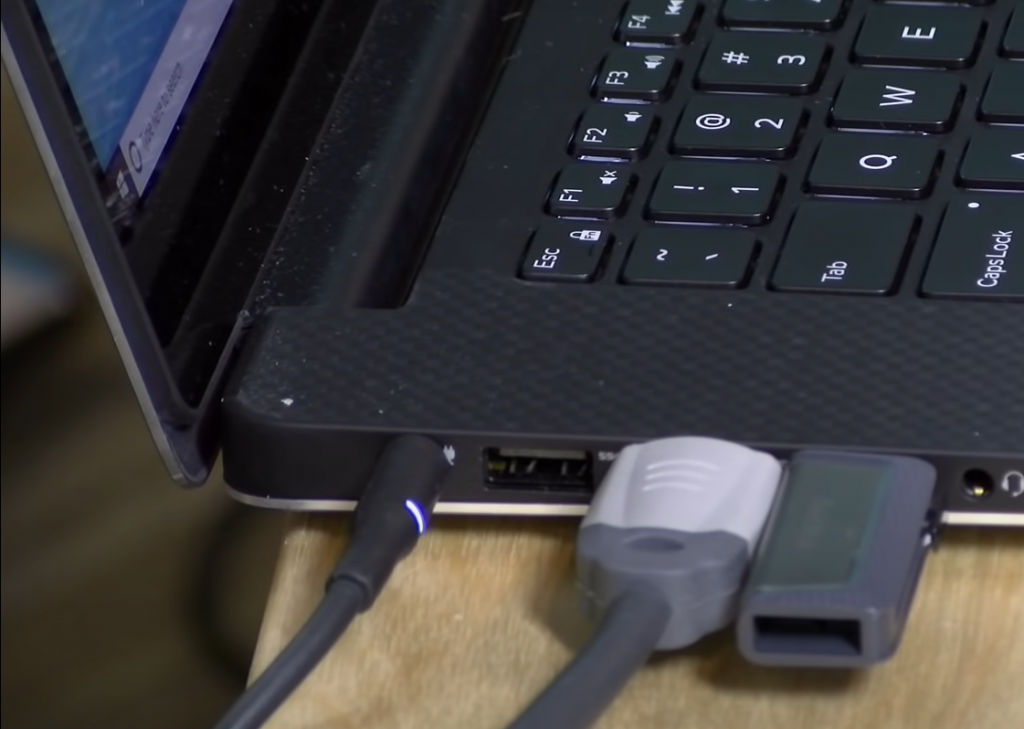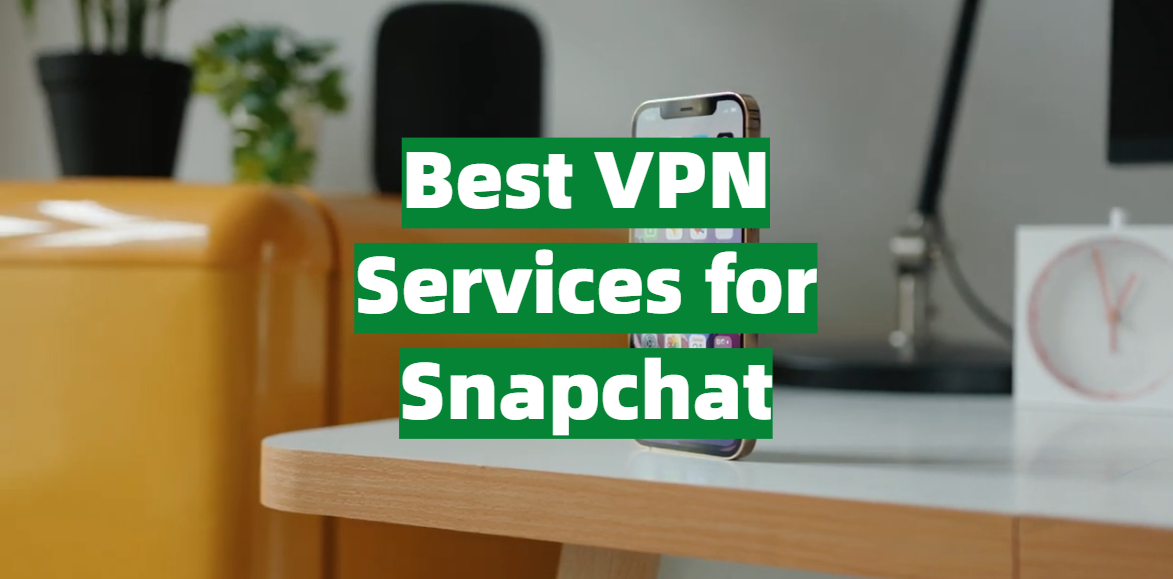
- Network Lock kill switch
- No activity or connection logs
- 160 server locations
- IP address masking

- Uninterrupted streaming
- Multiple devices
- Split tunneling support
- P2P welcome here

- IKEv2/IPsec
- Hide your IP
- Camouflage Mode
- Private DNS & leak protection

- Public Wi-Fi Protection
- 5 Simultaneous Connections
- 70+ Worldwide Server Locations
- High-Speed Streaming

- Gigabit VPN Port Speed
- Professional support
- SOCKS5 OpenVPN Proxy
- High VPN bandwidth
Choose the Best VPN Service for Raspberry Pi
Customer’s Choice: the Best VPN Services for Raspberry Pi
5 users answered this survey. Please help us improve this review!
A virtual private network, or VPN, is a great way to add security and privacy to your Raspberry Pi. Whether you’re using your Pi for home security or as a media server, a VPN is a must-have tool. In this article, we’ll discuss the best VPN services for Raspberry Pi and answer some common questions about setting them up.
Product reviews and recommendations are a great way to get started, but they can only take you so far. To really find the best VPN for your needs, it’s important to understand how they work and what features to look for. With that in mind, let’s take a closer look at some of the best VPNs for Raspberry Pi.
We’ll also review some of the top VPN providers on the market so that you can choose the right one for your needs.
ExpressVPN – the Editor’s choice!
Are you looking for a reliable and fast VPN service? ExpressVPN is worth your attention!
With more than 3000 servers in 90+ countries, ExpressVPN offers one of the widest networks of available locations. You can connect to any server you need and enjoy stable connection and high speed. The military-grade encryption will protect your data from any third-party interference, so you can be sure that your online activity is absolutely safe. In case you’re not satisfied with the service, ExpressVPN offers a money-back guarantee for 1 month.
The app is compatible with most popular operating systems, including Linux-based Raspbian OS. It’s easy to install and use, and it comes with a package for RPI OS.
With 3000+ servers in over 90 countries, ExpressVPN provides you with a fast and reliable connection no matter where you are. The military-grade encryption ensures that your data is always safe, and the money-back guarantee means that you can try it out without any risk.NordVPN – the best server network!
NordVPN is one of the top VPN providers in the world. They offer a staggering 5200 servers in more than 60 countries, and you can connect up to 6 devices at once. They use military-grade encryption to keep your data safe and secure, and they have a money-back policy if you’re not satisfied.
NordVPN is compatible with most popular operating systems, and their connections are lightning-fast. They also have excellent customer support if you need any help.
Plus, their Raspbian-compatible app makes it easy to use for Linux users. The only downsides are that they don’t have a GUI for their Linux app and they don’t block ads. But overall, NordVPN is an excellent choice for anyone looking for a top VPN provider on your Raspberry Pi device.
With over 5200 servers in more than 60 countries, it’s one of the largest networks in the industry. And with 6 connections allowed at once, it’s great for families or small businesses. NordVPN is also one of the few providers that offer a true military-grade encryption service. So if security is a top concern, this is a great option.Surfshark – the best streaming speed!
If you’re looking for a great VPN service that’s affordable, Surfshark is a great option. It has over 3200 servers in 95 countries, so you’ll be able to connect to a server no matter where you are. And with unlimited connections at the same time, you’ll never have to worry about being disconnected. Plus, Surfshark has great streaming speed and wide compatibility with popular operating systems like Android and Linux.
And if you ever have any questions or issues, Surfshark’s live support chat is always there to help. In addition, premium users get access to extra features like split tunneling and a kill switch.
And if you’re worried about security, don’t be! Surfshark has got you covered with WideGuard on all its apps. Plus, Surfshark has great streaming speed and wide compatibility with popular operating systems like Android and Linux.VyprVPN – the best server protection!
As more and more people become concerned about their online security, a VPN is an increasingly attractive option. VyprVPN is a great choice for those looking for a reliable and user-friendly VPN. WideGuard support ensures great server protection, while the Chameleon protocol ensures a stable connection.
The no-logs policy is also very appealing, as it means your data will never be stored or shared. VyprVPN also has its own servers, which is always a plus. 24/7 live support is available for customers, and the money-back guarantee provides peace of mind.
The only downside is that the connection speed is average and the server network is relatively small.
VyprVPN is also user-friendly, so you won’t have any trouble getting up and running. And with the Chameleon protocol, you can be sure that your data is completely secure. Moreover, VyprVPN has a no-logs policy, so you know your data is safe.Private Internet Access – the best for ad blocking!
If you’re looking for a reliable VPN service with a great set of features, Private Internet Access is definitely worth checking out. It’s one of the most popular VPNs on the market, and for good reason – it offers a great blend of security, speed, and flexibility. And with over 35000 servers in more than 80 countries, you’ll always be able to find a fast connection.
Private Internet Access uses military-grade encryption to keep your data safe, and they have a no-logs policy so you can be sure your privacy is protected. Moreover, their automatic kill switch ensures that your data will never be exposed if the VPN connection drops.
And unlike some other VPNs, PIA won’t slow you down or limit your bandwidth. You’ll be able to browse, stream, and download at lightning-fast speeds.
PIA offers military-grade encryption, a handy ad and malware blocker, over 35000 servers in more than 80 countries, and the ability to connect up to 10 devices at the same time. In addition, their iOS and Android apps are top-notch.The Buyer’s Guide
Why Should I Use A VPN On Raspberry Pi:
Rising Security & Privacy Threats
There are more sophisticated threats to your online privacy and security emerging every day. By using a VPN, you can protect your Raspberry Pi from prying eyes and keep your data safe and secure.

As a result, utilizing a VPN to secure your Raspberry Pi from various cyber dangers is critical, especially if you connect to public WiFi.
All of your information is transmitted via the VPN tunnel, ensuring that your Raspberry Pi devices are safe [1].Full Access To Geo-Blocked Content
A VPN will allow you to unblock geo-restricted content so that you can enjoy all your favorite TV shows, movies, and websites from anywhere in the world. By connecting to a VPN server in a different country, you can bypass regional restrictions and access content that would otherwise be unavailable.
Improved Download & Streaming Speeds
By connecting to a server in a different location, you can often improve your download and streaming speeds. This is especially useful if you’re trying to access content from a country with strict internet regulations.
Invasion Of Privacy By Blanket Surveillance
Governments and ISPs can often collect data on your online activity. By using a VPN, you can keep your browsing habits private and prevent your ISP from selling your data to third-party advertisers.
Using a VPN on your Raspberry Pi is one of the ways to prevent government agencies from monitoring your online activity. Its IP cloaking and military-grade encryption will keep anyone from eavesdropping on you.
Access Blocked Websites & Apps
In some countries, the government censors certain websites and apps. A VPN will allow you to bypass these censorship filters so that you can access any site or app you want.
Main Features
Free Or Paid
There are many free and paid VPN services available for Raspberry Pi. However, paid VPNs usually offer better security and speed than free ones. In addition, paid VPNs often have more features than free ones.
You may use a free VPN on your Raspberry Pi if it supports Rapsbian OS. There are numerous free VPN services available, some of which may operate with your Raspberry Pi if they support Rapsbian OS.
Some of these free apps may appear useful, but they have the potential to infringe on your privacy rather than safeguard it. Some free VPNs, for example, keep track of you online and sell your personal information to marketers.
Other free VPN services impose speed and bandwidth restrictions, making them pointless for any real purpose.
So, if you truly value your privacy and want a VPN that will actually work for you, the best option may be to invest in a VPN service.
As it becomes more difficult to maintain complete online privacy. Purchasing a full-fledged VPN service for your Rasberry Pi may be an excellent investment in terms of security.
Security
It is very important when using a VPN. A good VPN will encrypt your traffic and hide your IP address. This is important when using public Wi-Fi or accessing sensitive information [2].
A VPN can also help to bypass censorship and geo-restrictions. By connecting to a server in another country, you can access websites and content that would otherwise be blocked.
If a VPN doesn’t provide enough security, such as government-grade encryption, a kill switch, and other internet security and privacy protection features, look for another provider. For extra points, consider malware and virus blocking. Don’t even think about any VPN that doesn’t keep records of its servers.
User-Friendly Or Not
Ease of use is a highly regarded feature for many customers. The VPNs we suggested come with simple-to-use software. The best software is available for all major platforms, including Windows, macOS, iOS, Android, and Linux.
They also have helpful features like a kill switch to protect your privacy if the VPN connection drops [3]. If you’re not tech-savvy, don’t worry.
Some even have pre-configured routers so that you can connect all your devices with one click. Just remember that user-friendly doesn’t mean featureless. The provider should still offer robust security features.
The List Of Supported Countries
When you are looking for a VPN service for your Raspberry Pi, you will want to make sure that it has servers in many countries. Unfortunately, not all VPN providers have servers in a lot of countries. Some only have servers in a handful of countries, which limits their usefulness.
If you need a VPN for your Raspberry Pi that has servers in many countries, most experts recommend ExpressVPN or NordVPN. Both of these providers have servers in over 60 countries and offer excellent speeds and reliability [4].

If you don’t need a VPN with such a wide selection of server locations, then IPVanish is also a good option. IPVanish has servers in over 40 countries and offers good speeds and security features.
Privacy Policy
A good VPN will have a solid privacy policy in place to make sure your data is protected. Be sure to read through the privacy policy before signing up for a service.
You should also take a look at the logging policy. This is how the VPN keeps track of what you’re doing while you’re using their service. Some VPNs log more information than others, so it’s important to find one that suits your needs.
Finally, make sure the VPN has strong security features. This includes encryption, anti-malware protection, and a kill switch. These features will ensure your data is safe from prying eyes and malicious software.
Setting Up VPN On Raspberry Pi
Connect Raspberry Pi To VPN With A Router That Supports VPN
If you have a router that supports VPN connections, you can connect your Raspberry Pi to it. This is the best way to set up a VPN on your Raspberry Pi since it doesn’t require any extra software or modifications.
To do this, you’ll need to find a router that supports VPN connections and then follow the instructions for setting it up. Once your router is configured, you can connect your Raspberry Pi to it and use the VPN like normal.
Directly Configure VPN On Raspberry Pi
If you don’t have a router that supports VPN connections, you can still configure a VPN on your Raspberry Pi. This is a bit more complicated than using a router, but it’s still not too difficult.
You’ll need to install software onto your Raspberry Pi and then set up the VPN server. Once everything is configured, you can connect to the VPN just like you would with any other VPN service.
As you can see, there are a few different ways to set up a VPN on your Raspberry Pi. You can use a router that supports VPN connections or directly configure a VPN on your Raspberry Pi. If you’re not sure which method to use, we recommend setting up a VPN with a router since it’s simpler and doesn’t require any extra software.
Can I Use A Free VPN With My Raspberry Pi?
The simple answer is yes, you can use a free VPN with your Raspberry Pi. However, there are a few things to keep in mind before you do so. Free VPNs generally come with data limits, which means you won’t be able to use them for streaming or downloading large files. Additionally, free VPNs often have slower speeds and may not offer the same level of security as paid VPNs.

That said, there are still some good free VPNs out there that can be used with Raspberry Pi.
Both of these VPN services offer decent speeds and security features, though they do have data limits in place.How Else Can I Secure My Raspberry Pi Device?
There are many other ways to secure your Raspberry Pi device in addition to using a VPN service:
- One way is to use a firewall. A firewall can be software-based, like the one that comes pre-installed on most operating systems, or it can be hardware-based. If you’re looking for a more comprehensive solution, you can also consider using a security appliance;
- Another way to protect your Raspberry Pi is to keep it up-to-date with the latest security patches and updates;
- Finally, you can also use encryption to protect your data. Encryption is especially important if you’re storing sensitive data on your Raspberry Pi, such as financial information or personal files;
FAQ
Is Raspberry Pi good for VPN?
Raspberry Pi is a low-cost, credit-card-sized computer that plugs into a TV or monitor.
It can be used for many of the same tasks as a desktop PC, including spreadsheets, word processing, browsing the internet, and playing games. VPN can be installed on Raspberry Pi devices running Raspbian OS [5].
Using a Raspberry Pi to create a virtual private network (VPN) that can run 24 hours a day, seven days a week without consuming significant amounts of energy is an inexpensive way to go.
It’s compact and strong enough to manage several connections at once, making it perfect for personal use at home.
VPNs can help you get access to encrypted and secure internet traffic even when you’re using public Wi-Fi.
There are lots of reasons to use a VPN when you’re online – whether you’re worried about your privacy or want to access geo-restricted content. Using a VPN with Raspberry Pi is easy and there are lots of great options to choose from.
How do I make my Raspberry Pi a VPN server?
You can use a VPN service like NordVPN or ExpressVPN, which offer pre-configured routers that come with all the necessary software installed. Just follow their instructions to set up your router and connect it to the internet [6].
If you want to set up your own VPN server from scratch, you’ll need to install Raspbian OS on your Raspberry Pi and then install the OpenVPN server software. This is a more complicated process, but it gives you more control over your VPN configuration.
Once you have your VPN server up and running, you can connect to it from anywhere in the world by using the OpenVPN client software, which is available for all major operating systems.
If you wanted to get some of the advantages of a full-fledged VPN service, you could turn a Raspberry Pi into a VPN server. You will prevent your ISP from tracking your online activities by using a Raspberry Pi VPN server to connect to the internet. You will also be able to browse websites without revealing your real IP address and true location.
However, think about what you’ll miss out on.

One of the most significant advantages of business VPN services is their enormous number of servers located in numerous countries all over the world. With such a vast number of geographically dispersed VPN servers, you can now unblock geo-blocked material. In fact, using a VPN to stream is becoming increasingly popular as more and more people seek to access media sites like Netflix, Hulu, and Disney Plus from anywhere on the globe.
Another major advantage of utilizing a commercial VPN over a Raspberry Pi VPN server is anonymity. When you use a business service, your online activity will be blended in with the thousands of other users on the network, and the precise physical VPN server you connect to will probably change frequently.
The Pi VPN server will encrypt all activity from your device and send it through the Pi VPN server. This means you won’t be mistaken for someone else behind the same IP address since you won’t be mixing in with a group of others.
Can NordVPN run on Raspberry Pi?
You may connect your Raspberry Pi device to the Internet using the OpenVPN or NordLynx protocols and install NordVPN [7].
NordVPN has a few servers that are compatible with the Raspberry Pi. You can use either the OpenVPN or NordLynx protocols to connect to these servers.
Installing NordVPN on your Raspberry Pi device is a straightforward process. You can find installation instructions on their website. Just select the protocol you want to use, follow the instructions, and you’ll be up and running in no time.
Is WireGuard better than OpenVPN?
Because it handles network changes better than OpenVPN, WireGuard is more dependable for mobile users.
The data overhead of OpenVPN is up to 20%, whereas WireGuard consumes just 4% more data (compared with not using a VPN).
When utilizing WireGuard, VPN providers must take precautions to preserve user privacy [8].
Is Raspberry Pi VPN free?
Raspberry Pi is a small, affordable computer that you can use to run a VPN server. The cost of running a Raspberry Pi VPN server is around $60 per year. This is much cheaper than the cost of a commercial VPN service [9].
You can find many free and paid VPN services for Raspberry Pi. Some of the most popular ones are NordVPN, ExpressVPN, and WireGuard. You can also find many tutorials on how to set up a VPN server on your Raspberry Pi.
How do I install NordVPN on Raspberry Pi?
Installing NordVPN on Raspberry Pi is a simple process that can be completed in just a few minutes [10]:
- The first step is to download the NordVPN app from the Google Play Store or official website;
- Once the app is installed, launch it and sign in with your account credentials;
- Next, connect to a VPN server by selecting one from the list of servers located in the main menu;
- Finally, click the “Connect” button to establish a secure VPN connection;
Does NordVPN support WireGuard?
Yes. The NordLynx protocol is an encryption technique that may help you maintain your privacy while utilizing a VPN.
It’s a method of encrypting your user information as it travels to and from the VPN server, ensuring no one can snoop on it in transit [11].
NordicVPN is based on a protocol called WireGuard, which has two outstanding features. One is its ability to deliver fast internet connection speeds while maintaining encryption security.
When you connect to a VPN server, there’s an extra step for your data to go through. NordLynx should make sure that you don’t notice any perceptible delay on your end. Your data will swiftly move between the NordVPN server and back, remaining completely encrypted throughout its journey.
Can Raspberry Pi be a router?
The Raspberry Pi has two network interfaces, a Wi-Fi interface, and a wired network interface. You may use the Raspberry Pi as a wireless router or a cable router [12]. You can link your Raspberry Pi to a wireless Wi-Fi network that is connected to the internet and send internet traffic over the wired network connection.
Routers are devices that connect two or more computer networks. A router links multiple home and office networks together and allows them to communicate with each other. Routers also provide a way for computers on different network segments to communicate with each other. The Raspberry Pi can be used as a router–just like a normal router, the Raspberry Pi sends and receives data packets between computers and the internet.
The Raspberry Pi has 2 USB ports, which can be used to connect external storage devices such as hard drives or flash drives. This is useful if you want to use the Raspberry Pi as a file server. You can also use the USB ports to connect a printer or scanner to the Raspberry Pi.
How do I access my Raspberry Pi remotely?
The most common way to access a Raspberry Pi is via SSH. SSH, or Secure Shell, is a protocol that allows you to connect to a remote computer securely. To use SSH, you’ll need to install an SSH client on your computer [13].
There are many different SSH clients available, but we recommend using PuTTY for Windows or Terminal for MacOS. Once you’ve installed your chosen SSH client, open it and enter the IP address of your Raspberry Pi. The default username is ‘pi’ and the default password is ‘raspberry’.
Once you’re connected, you’ll be able to run commands on your Raspberry Pi just as if you were sitting in front of it.
Should I pay for VPN?
If you’re looking for a VPN for Raspberry Pi, free might sound tempting. But free services are often slow, unreliable, and insecure.
Paying for a VPN is worth it for the peace of mind and improved security that comes with it. And if you use your Raspberry Pi for sensitive tasks like online banking or shopping, a VPN can help keep your information safe from hackers.
To get started with a paid VPN on your Raspberry Pi, just sign up for an account with one of the providers we’ve recommended below. Then follow their instructions to set up the VPN on your device.
What is the average cost of a VPN service?
Typically, virtual private networks (VPNs) cost around $10 per month. However, they are more inexpensive if you sign up for a longer-term agreement.
When broken down monthly, yearly contracts average out to $8.41 per year, while two-year agreements average out to just $3.40 each month [14].
Useful Video: PiVPN : How to Run a VPN Server on a $35 Raspberry Pi!
Final thoughts
So, whether you’re looking for extra security and privacy while browsing the web or want to be able to access blocked content from anywhere in the world, a VPN is a must-have tool for your Raspberry Pi. In this article, we’ve shared our top picks for the best VPN services for Raspberry Pi. We also answered some common questions about setting up and using VPNs with your Pi. Now it’s time to choose the right one for your needs and get started protecting your data!
References:
- https://www.vpnranks.com/best-vpn/raspberry/
- https://www.f-secure.com/us-en/home/articles/6-things-to-consider-when-choosing-a-vpn
- https://pixelprivacy.com/vpn/raspberry-pi-vpn/
- https://raspberrytips.com/best-vpn-on-raspberry-pi/
- https://pimylifeup.com/raspberry-pi-vpn-server/
- https://restoreprivacy.com/vpn/raspberry-pi/
- https://support.nordvpn.com/FAQ/Setup-tutorials/1047409772/How-to-configure-a-Raspberry-Pi.htm
- https://www.top10vpn.com/guides/wireguard-vs-openvpn/
- https://www.electromaker.io/tutorial/blog/raspberry-pi-vpn-server
- https://techshielder.com/how-to-set-up-and-use-nordvpn-on-raspberry-pi
- https://nordvpn.com/ru/blog/nordlynx-protocol-wireguard/
- https://linuxhint.com/raspberry_pi_wired_router/
- https://en.wikipedia.org/wiki/Secure_Shell
- https://www.security.org/vpn/cost/








Leave a Reply